During his first term in office Pres. Donald Trump attempted to roll back federal fuel economy standards. He has signaled plans to take similar steps when he returns to office and may also issue orders that could reduce demand for highly efficient EVs. But that would fly in the face of what a new survey shows: improved fuel economy “at least somewhat important” to 96% of American drivers, crossing political boundaries.
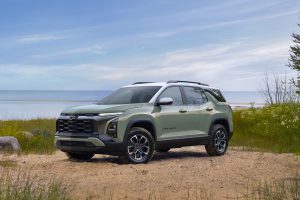
Today’s latest vehicles, like this 2025 Chevrolet Equinox, can save $9,000 or more over their lifetime by reducing fuel consumption.
Today’s newest cars, trucks and crossovers are significantly more fuel efficient than those brought to market two decades ago, adding up to savings of more than $9,000 over the life of the vehicle, according to an analysis by Consumer Reports. And The savings could grow substantially by the end of the decade based on the latest federal mileage mandates.
But those updated regulations could be rolled back, or eliminated entirely, based on signals sent by President-elect Donald Trump and his transition team. He previously attempted to back down on mileage rules during his first term in office but was blocked by the courts. And his successor, Joe Biden, scuttled those rollback guidelines.
Biden, rather than Trump, appears to be in sync with public sentiment, Consumer Reports found in a new survey. In a newly released summary of the findings it reports that, “Ninety-six percent of American drivers say fuel economy is at least somewhat important to them when considering what vehicle to purchase or lease, and two-thirds (66%) say it is very important or extremely important.
Big savings
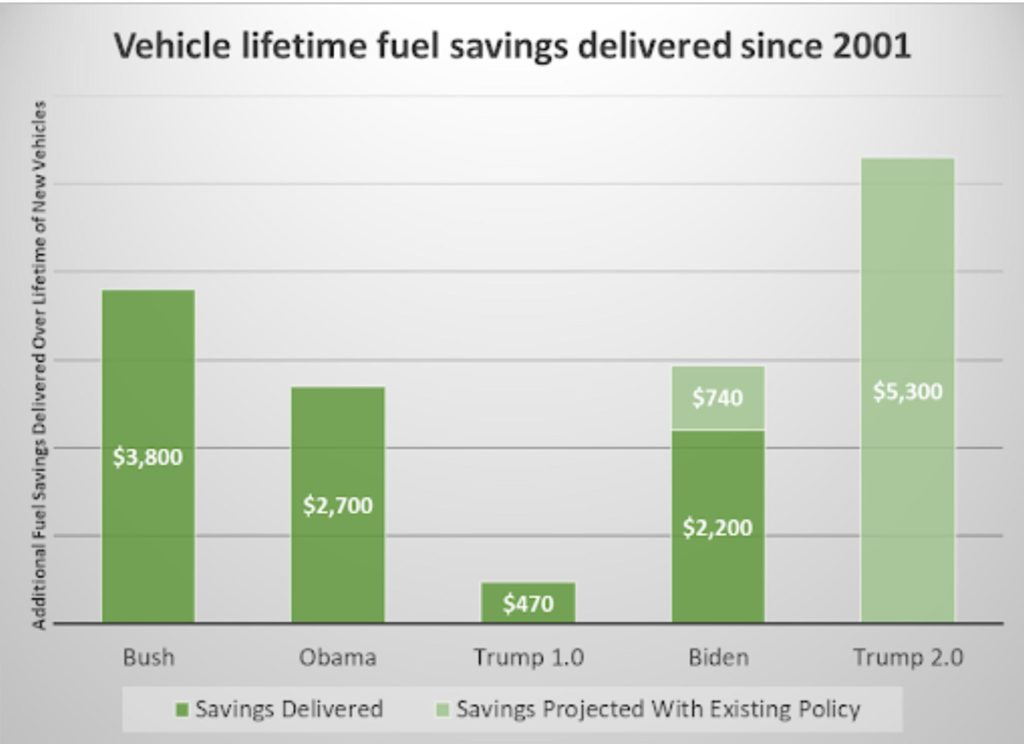 Corporate Average Fuel Economy, or CAFE, mandates were first enacted by Congress in 1975 as a response to the 1973-1974 Arab oil embargo. The guidelines initially covered passenger vehicles and, as of 1978 required each manufacturer to achieve an average 18.0 miles a gallon. Light trucks were added to the rules as of 1982, reflecting growing sales of pickups and SUVs.
Corporate Average Fuel Economy, or CAFE, mandates were first enacted by Congress in 1975 as a response to the 1973-1974 Arab oil embargo. The guidelines initially covered passenger vehicles and, as of 1978 required each manufacturer to achieve an average 18.0 miles a gallon. Light trucks were added to the rules as of 1982, reflecting growing sales of pickups and SUVs.
The guidelines for passenger cars were held at 27.5 mpg for close to two decades but have since pushed northward. Final rules published last June by the White House “require an industry-wide fleet average of approximately 50.4 miles per gallon (mpg) in MY 2031.”
Compared to vehicles produced in 2001, the Consumer Reports analysis found, the latest models “deliver fuel savings of over $9,000.”
“The analysis also estimated that an additional $6,000 in fuel savings could be delivered to consumers purchasing model year 2029 vehicles,” the non-profit said in a summary, “as long as existing federal efficiency and emissions standards remain in place.
Trump targets mileage, other auto regs
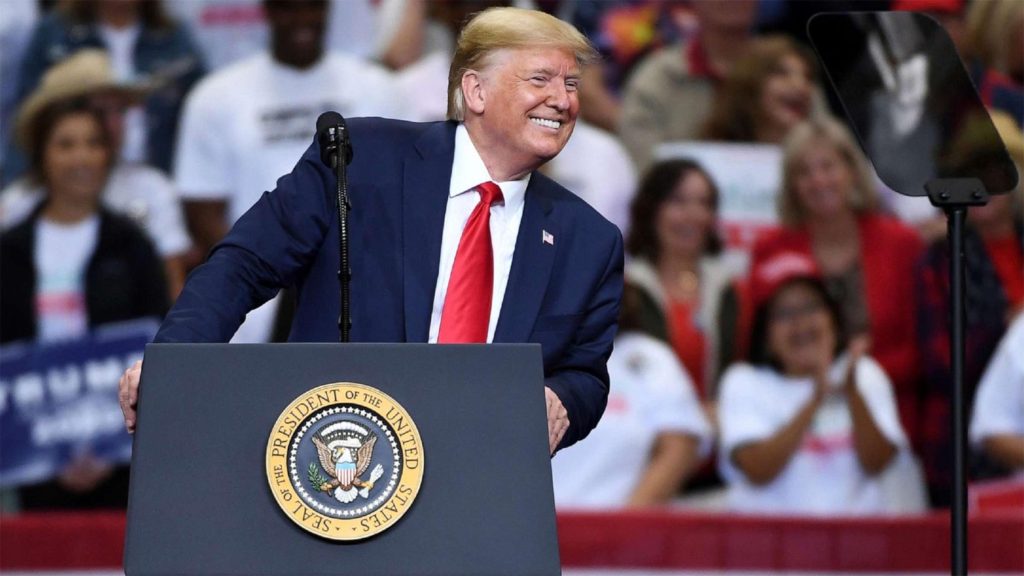
Pres.-elect Trump is expected to follow up on some moves made – then blocked – during his first administration.
During his first term in office, Pres. Trump took aim at a variety of environmental regulations, notably including those impacting the auto industry. That included Obama-era mileage standards which, former Transportation Secretary Elaine Cho claimed, would result in reduced vehicle safety, threatening to increase U.S. highway fatalities by as many as 3,300 annually.
That argument was widely rejected, even by some automakers who had sought a more modest mileage rollback. The plan was ultimately tied up in court and then scuttled by the Biden administration.
But Trump and his team have sent strong signals they will once again move to reduce CAFE targets. Trump, Reuters reported this week, is prepared to issue “a suite of executive orders to roll out within days of taking office.” These could include “sweeping changes” including a rollback in mileage mandates, as well as th
e elimination of incentives for purchases of battery-electric vehicles, and support for the nationwide rollout of a public EV charging network.
More News on Autos and Politics
- 2nd Trump Term Poses Risks, Opportunities for Auto Industry
- Biden Admin Moves Forward on Ban of Chinese Connected Cars
- Trump Tells Oil Industry He’ll Reverse Biden Regs for $1Bil in Campaign Donations
Consumers want improved mileage
If Trump follows through he could strong public pushback.
“Americans across the political spectrum want to spend less to fuel their vehicles, and they think there’s significant room for improvement by automakers,” said Chris Harto, a senior policy analyst for transportation and energy at Consumer Reports.
Fully 96% of those surveyed felt fuel economy was a somewhat or very important issue, the new study found, and 64% said they wanted Washington to continue increasing mileage standards.
It’s widely expected that any push to reverse Biden-era mileage, emissions and EV regulations will face aggressive legal challenge – as happened during his first administration. And it’s not clear Trump would have the backing of the industry. While some automakers have openly expressed support for a CAFE rollback, others have suggested they could live with the guidelines enacted under Pres. Biden.
There is, however, near-unanimous industry support for eliminating current federal rules that allow California to set even tougher rules than the federal government – which, in turn, have been adopted by more than a dozen other states. With a “woefully inadequate” charging infrastructure, those states can’t meet their sales targets without manufacturers having to virtually give away their EVs, Kia Chief Operating Officer Steve Center told Headlight.News.

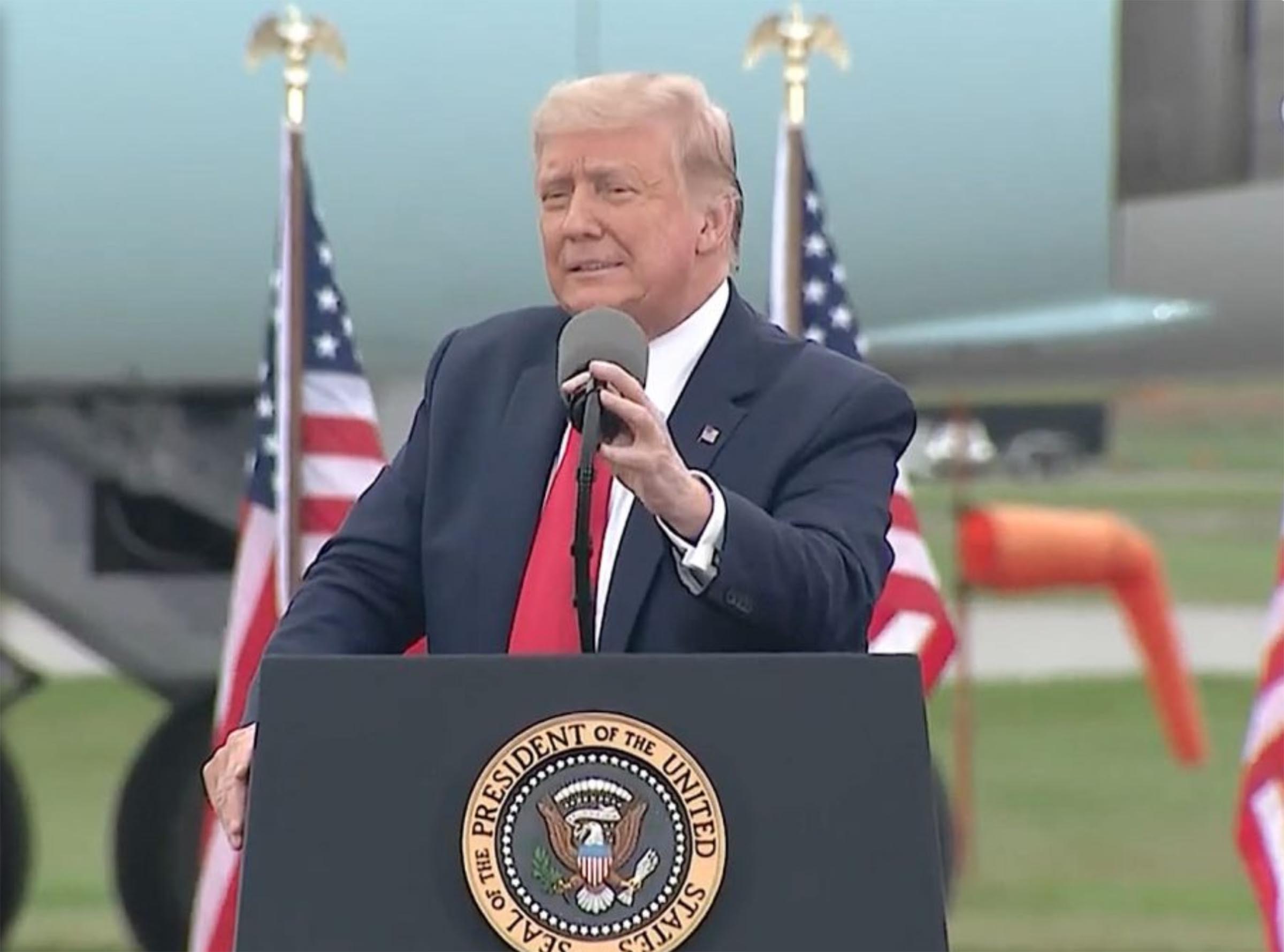


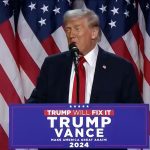
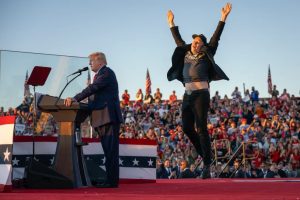

That Trump guy, he never does what people (real people) want!